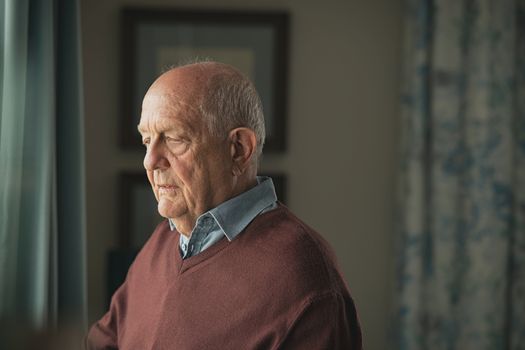How Seasonal Affective Disorder (SAD) Can Impact Seniors and Tips to Help Combat it

Undoubtedly, it has been a challenging year, with the health concerns surrounding COVID-19 at the forefront of many seniors’ minds. Unfortunately, as the year finally comes to a close, comes another 'downer': Seasonal Affective Disorder.
Fellowship Square discusses this disorder, why this year may impact seniors worse than in previous years, and tips to help combat it.
A recent article on www.nytimes.com states, “… while the pandemic, with its myriad economic, vocational, educational and social disruptions, is challenge enough for people who are not normally prone to the blues, the days of truncated daylight this November through March could be far gloomier than usual for millions of Americans who suffer annually from seasonal depression.” It goes on to explain, “This winter the pandemic is expected to intensify the depression experienced by many people with the syndrome known as seasonal affective disorder, or SAD, which predictably kicks in each fall when the hours of daylight shorten in the Northern hemisphere and gradually remits in spring.”
Also referred to as the “winter blues,” SAD affects about one in 20 people and is characterized by feeling down or even depressed. People who experience SAD may have trouble sleeping, experience low energy or difficulty concentrating, feel sluggish, agitated, hopeless, or worthless, and could even have frequent thoughts of death or suicide, according to the National Institute of Mental Health (NIMH). Particularly as it relates to winter-pattern SAD, people may also have symptoms that include oversleeping, overeating, weight gain, and social withdrawal.
This winter season can be even more difficult for seniors who are already isolated or feeling disconnected from family and loved ones due to COVID-19. Seniors should take good care of themselves and see a doctor if feelings of SAD become too overwhelming. There are treatments for SAD, including light therapy (exposing patients to bright lights to account for the diminished natural sunshine in the darker months, according to the NIMH), talk therapy designed to help people develop the tools to cope with these difficult situations, a daily dose of vitamin D; and medication, which a doctor should prescribe. Seniors may help themselves out of a light case of the winter blues by calling a good friend or loved one, engaging in activities they enjoy, such as listening to good music, taking a walk in the sun, or reaching out to God through prayer.

